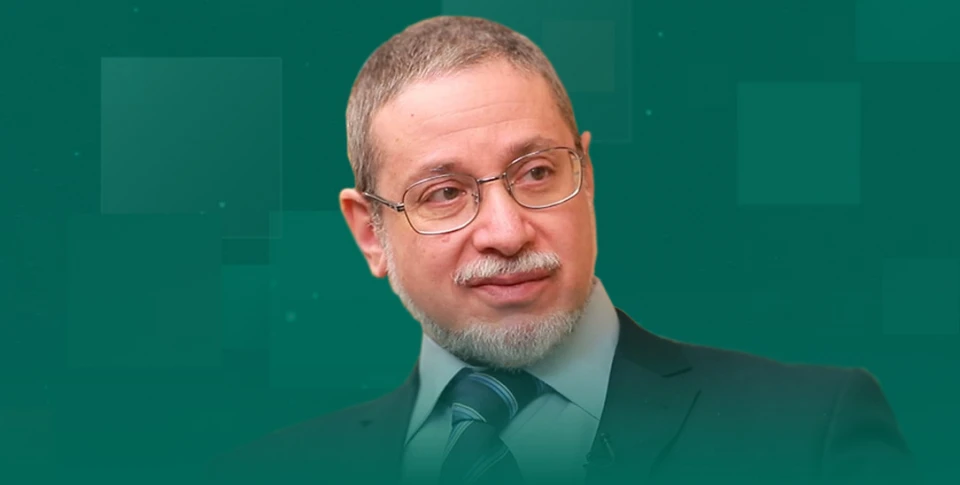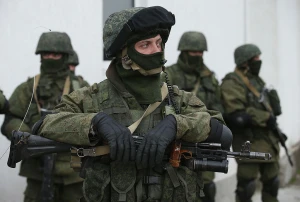
Ukraine has moral right to talk about restarting international institutions
The election and inauguration of the new U.S. president have brought international institutions back into the spotlight. It’s clear that this whole system hasn’t worked for a long time, but what’s next?
International institutions have historically been created after major wars to lock in a world order shaped by the victors. Under the banner of “Never Again,” they were meant to prevent the defeated powers from repeating their actions. The victors set the rules and values of post-war life: this was true for the League of Nations, the UN, the Universal Declaration of Human Rights, and other key documents that define today’s global norms. We can even look back further, to the Peace of Westphalia.
But after the Cold War, no one officially recorded communism’s defeat. No new institutions, no groundbreaking documents, no equivalent of the Nuremberg Trials ever happened.
Instead, the victors were too busy celebrating the so-called “end of history.” And unpunished evil always comes back — that’s exactly where we are now. Instead of “Never Again,” the world ended up with “We can do it again.”
Without formally addressing Russia’s defeat in the current war, the world risks being left with a security vacuum instead of a stable order.
Would that be better — at least for the U.S.? I don’t think so. The alternatives are simple: a world based on rules and agreements or a world ruled by brute force. In a “might makes right” world, the strong have to keep proving they’re stronger. That means bloodshed — American blood included — something the U.S. clearly wants to avoid. Even a basic cost-benefit analysis shows that a rules-based world is better, even for those who might prefer chaos. As the Chinese proverb goes: people in glass houses shouldn’t throw stones.
Ukraine has the moral right to demand the reboot of international institutions. We’ve lived through their failure firsthand.
Obviously, the new world order must first recognize the shift in global balance. The current UN Security Council doesn’t include several of the world’s most powerful nations as permanent members.
Second, the new world order must eliminate double standards; otherwise, it won’t hold. This is particularly true for decolonization. The 1960 Declaration on the Granting of Independence to Colonial Countries and Peoples became the cornerstone for ending imperial domination across much of the world, preventing further imperial wars. It brought freedom to the peoples of Africa, South and Central Asia, the Middle East, Oceania, and Latin America, but not to the peoples of North Asia, colonized by Moscow. The Russian Empire survived, leading directly to the current war. That’s why, last year, the European Parliament, PACE, and the OSCE Parliamentary Assembly adopted resolutions naming the decolonization and deimperialization of Russia as the only paths to lasting peace and democratic progress. Without this, we’ll witness “the end of history in reverse.”
Third, the system for executing projects via international institutions needs reform. The current framework largely operates in isolation, fails to meet its core objectives, prioritizes weak internal KPIs over meaningful goals, lacks a comprehensive approach, and measures quality by internal comfort rather than actual results. A key improvement could be transitioning project implementation to local organizations. This would demand more work in central and regional offices but would strengthen local capacity, directly enhancing institutional development.
Hesitation in rebooting international institutions stems from fear, Russian money, and outdated traditions of "Russian studies," which, during the Soviet era, didn’t differentiate between Russians, Ukrainians, Georgians, Estonians, and Uzbeks — and now fail to recognize Tatars, Chechens, Buryats, and Sakha-Yakuts. The confusion is compounded by the unconscious but widespread notion of "historical" versus "non-historical" nations, introduced by Hegel.
"Historical" nations are seen as having greater rights, including “zones of influence.” They’re considered untouchable — free from defeat, embargoes, asset seizures, or membership restrictions in international organizations.
Russia began undermining the global order in 2008, and the world turned a blind eye. But as Herman Pirchner points out, Russia had long been violating most treaties it signed.
The first practical steps are detailed in the Sustainable Peace Manifesto, which states the following:
Ukraine’s official stance highlights the need to address a gross violation of the UN Charter. Since 1991, the Russian Federation has occupied the USSR's seat in the UN, bypassing the procedures outlined in the Charter.
In December 1991, this happened with the silent approval of Security Council members and the UN Secretariat. This denied all other UN members their right to vote on the matter in the General Assembly, as required by Article 4 of the Charter. Moreover, in clear violation, Russia usurped a permanent seat on the Security Council. The current Article 23 of the Charter lists “Union of Soviet Socialist Republics” as a permanent member — not the “Russian Federation.” No amendments have been made, and there has been no General Assembly vote approving the transfer of the seat from the USSR to Russia.
Section 1.3 of the Sustainable Peace Manifesto outlines many other issues regarding Russia's membership in international organizations.
Without reforming international institutions, we won’t see deimperialization. Instead, as Volodymyr Yermolenko warns, we’ll see “reimperialization” — new empires rising to replace the old ones, without republics or democracies emerging in their place. He adds that the world of the 21st century will be a world of new empires, no better than the old. And then, the ‘end of history’ will arrive with a completely opposite meaning.
About the author. Valeriy Pekar, lecturer at the Kyiv-Mohyla Academy
The editorial team does not always share the opinions expressed by blog authors.
- News













































